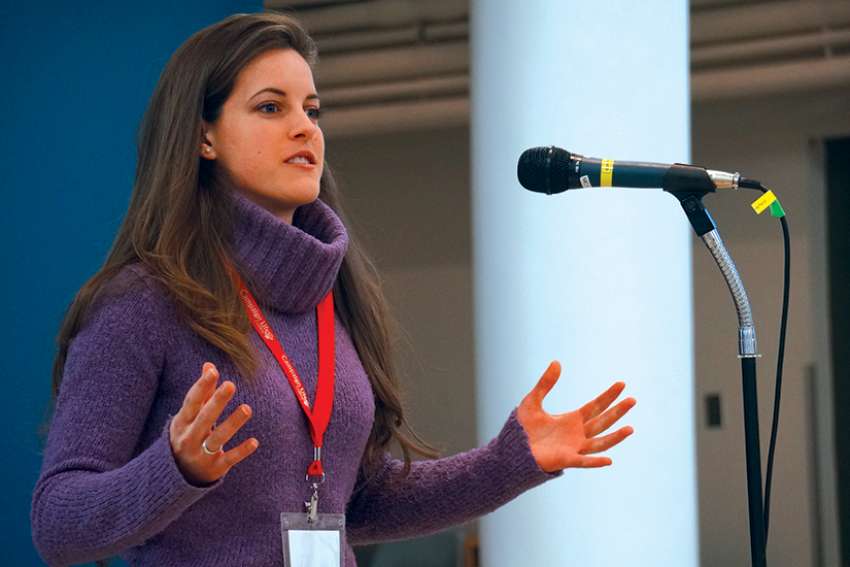“It falls in line with their history of dismissing the importance of women’s health,” said Marie-Claire Bissonnette, youth co-ordinator for Campaign Life Coalition (CLC).
CLC launched a video campaign against the drug that ends pregnancies before Canada approved its use in 2015. “They are kowtowing to the ideological perspective that choice comes before women’s protection,” said Bissonnette.
“Prescribers now have the flexibility to use their medical judgment on how best to determine the gestational age and to rule out an ectopic pregnancy,” Health Canada said in announcing the change April 16. “It also responds to concerns that some patients may have been facing unnecessary barriers or delays in accessing this product. The product monograph still recommends an ultrasound when the gestational age is uncertain or an ectopic pregnancy is suspected.”
Mifegymiso is actually two pills: mifepristone blocks the progesterone a body needs for pregnancy; misoprostol is then taken to induces contractions that end the pregnancy.
Bissonnette said taking the abortion drugs during an ectopic pregnancy risks the life of the mother, because Mifegymiso only affects the lining of the uterus and would not stop the fetus from developing in the fallopian tube . The growing fetus could cause the tube to rupture, with life-threatening complications.
Bissonnette pointed out there are ethical ways to deal with an ectopic pregnancy that can save the life of the mother. Taking the abortion drug robs her of that opportunity, she said.
Though Health Canada approved the drug in 2015, Mifegymiso only became widely available in January 2017. Health Canada reported 4,253 women used the drug last year. “Only one adverse reaction — heavy bleeding — was reported during that time,” the agency said.
“We’re definitely seeing a quick increase,” said Bissonnette. “This makes sense, because people deep down know it’s killing a child. Naturally, they would want to take the option that is the most private.
“We’ve seen a huge increase in the use of abortion pills in European countries,” she said. “In some Scandinavian countries, up to 98 per cent of abortions are through the pill.”
While abortion advocates applauded the move for removing barriers to access to the drug, Bissonnette worries about the health consequences to women, especially those in rural areas.
“The expected side effects are pretty severe in themselves: blood loss, nausea, vomiting, severe pain, headache and uterine contractions,” Bissonnette said. “The problem is because it is not moderated under the care of health care practitioners, there’s no knowledge of how much blood loss is normal.
“If a woman is alone, and does not know how much blood loss is normal, she may lose consciousness after a certain point and she could lose her life,” she said. “If she’s (taken the abortion drug) because she wanted privacy, who is going to call the ambulance? How long is it going to take for them to find her?”
Health Canada continued to warn against the use of the abortion drug past nine weeks or in the case of an ectopic pregnancy.
“Under these conditions, the drug may not successfully terminate the pregnancy, may damage the fetus, and can result in serious health risks to the pregnant woman,” it said.
Support The Catholic Register
Unlike many other news websites, The Catholic Register has never charged readers for access to the news and information on our site. We want to keep our award-winning journalism as widely available as possible. But we need your help.
For more than 125 years, The Register has been a trusted source of faith based journalism. By making even a small donation you help ensure our future as an important voice in the Catholic Church. If you support the mission of Catholic journalism, please donate today. Thank you.


